Water is a vital ingredient for the success of any vegetable garden and for life itself. There are 3 main ingredients to good plant care and a successful harvest. Firstly a lot of sunlight, secondly the right nutrients, and thirdly water!

But have you ever considered that not all water is created equal when it comes to nourishing your vegetable plants? In this blog post, I will explore the different types of water you can use in your garden and which one is the best water for your precious plants.
Tap water
Regular tap water is the most convenient and readily available source of water for most gardeners. In general, it is a great option to water your plants. However, the tap water quality can vary based on your location. So if you read this you could ask yourself, is my tap water safe to water my plants?

Chlorine or chloramines in tap water
In some regions, tap water may contain chemicals such as chlorine or chloramines, which are added to disinfect the water. These chemicals can be harmful to plants, especially in excessive amounts.
There are several ways to make chlorinated tap water more suitable for your vegetable garden, in other words, to dechlorinate your tap water. If you have the time, you can let it sit for at least 24 hours and up to 48 hours to allow the chlorine to dissipate. Bonus points if you expose the water to direct sunlight, the UV radiation will break down the chlorine and chloramines even faster.
If you don’t have this much time at hand you could set the water to a boil. In warm water, chlorine will turn into a gas and be removed from your tap water. The downside of this method is that the water has to be cooled to room temperature before you use it on your plants.
Alternatively, you can use a water conditioner or de-chlorinator to neutralize these chemicals before using the water on your plants. But I wouldn’t recommend that, you’re adding even more chemicals to remove some other ones.
The better option would be to use a charcoal filter or activated charcoal. By running water through (activated) carbon the chlorine and chloramines will be filtered out of the tap water.

Hard water and soft water
Hard water
There is a difference between hard water and soft or softened water. Hard water contains elevated levels of dissolved minerals. You might assume it contains healthy minerals—well, yes, but not entirely.
If you have very hard water in your tap you could inbalance the pH of the soil. Soil with a pH of 6 – 7 is best for most plants. If you use very hard water, all the time, you could disturb the pH level of the soil by making it higher. Your plants will not be thanking you for it.
Because there are more minerals present in hard water, watering your garden could lead to a mineral buildup in the soil. This in turn can result in waterlogged soil, which is not very beneficial for your plants. Most plants have an extensive root system that is susceptible to root rot if the soil drainage is not in order. Proper soil drainage is crucial for the health of your plants.
If you live in a hard water area, where the tap water is hard, it is probably a good idea to use a water softener, filter, or distiller to soften your water.
Soft water
While soft water is in most cases completely safe to water your plants with, there are some considerations to make:
- Softened water may contain more sodium which can be harmful to plants.
- The sodium content could cause your soil to salinity, which in turn could negatively affect the growth and health of your plants.
- Because of the lack of minerals, soft water can impact the soil structure.
- Softened water tends to have a slightly more acidic pH level. Check the pH of your soil to see if you need to adjust it accordingly.
To adjust softened water you can add the necessary minerals. Add mineral supplements or organic matter so the water gets enriched with good nutrition for your plants.
Rainwater
Rainwater is often considered the best choice for watering your vegetable garden. It is naturally soft and devoid of the chemicals found in tap water. Collecting rainwater in rain barrels or containers allows you to harness this free and eco-friendly resource for your garden. Plus, rainwater contains natural nutrients that plants love, making it an excellent choice for your vegetable garden.

However, be mindful of environmental pollution and air quality in your area, as pollutants can contaminate rainwater with for instance heavy metals. If pollution is a concern, consider installing a filtration system to ensure the water you collect is clean and safe for your plants.
Well water
If you have access to a well, well water can be a good choice for your vegetable garden. Well water is typically free from harmful chemicals and often contains essential minerals that benefit plants. However, it’s advisable to have your well water tested to ensure it meets the necessary quality standards your plants need for proper growth.

Natural spring water
Spring water is sourced from natural underground springs. It is usually free from chemicals like chlorine, chloramines, and fluoride you often find in tap water. The pH level of spring water is often neutral which is very good for your plants. Springwater also is rich in natural minerals.

The optimal source of spring water is a nearby natural spring on your property, providing convenient access for watering plants. Alternatively, purchasing bottled spring water is also a possibility. Unfortunately, buying bottled water is costly. Especially if you need to water a good amount of vegetable garden, making it a less economical water source option.
Distilled or filtered water
Distilled water, or water that is filtered in a water filter, is purified through a process that removes all impurities and minerals. While it’s clean and safe for your plants, it lacks the beneficial minerals that can be found in other water sources, just as soft tap water. If you choose to use distilled water for your vegetable garden, consider adding a balanced, water-soluble fertilizer, organic matter, or mineral supplements to replenish the nutrients your plants need.
Aquarium water
I think this one is a bit out of the box. If you own an aquarium and don’t use any chemicals that could hurt your vegetable plants, this could be a great source of water for your garden. So check if you’re using any harmful chemicals for plants, otherwise, this could be a source of water for your plants.
So what is the best water for your vegetable garden?
In conclusion, the best type of water for your vegetable garden largely depends on several variables. It depends on your location, pollution in your area, and available resources. I would say using rainwater is often the preferred choice. It is most times the easiest option, its natural composition is perfect for your plants, and it lacks harmful chemicals. If rainwater isn’t accessible, tap water or using well water can also be an effective option.
Regardless of the kind of water source you choose, the most important thing is to always monitor your plants’ health and adjust your watering routine as needed. If you see any brown spots or brown tips you should consider changing your water. You can check if you need to add some more nutrients, or change the pH of the soil. Remember, the key is to provide your vegetables with the right amount of water and nutrients to foster healthy growth, a well-drained root zone, and a bountiful harvest.

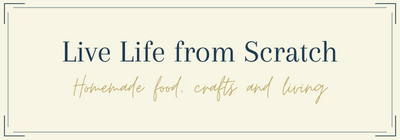
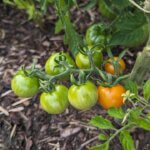
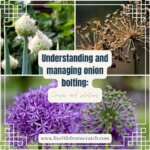

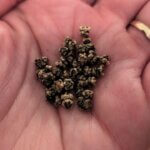
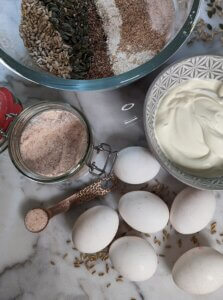


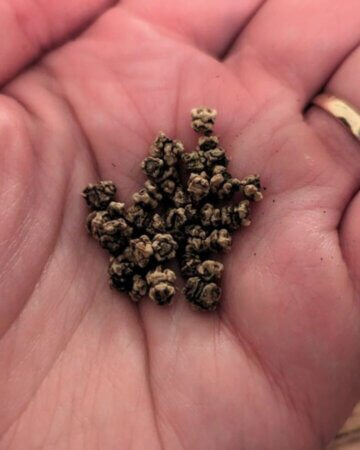
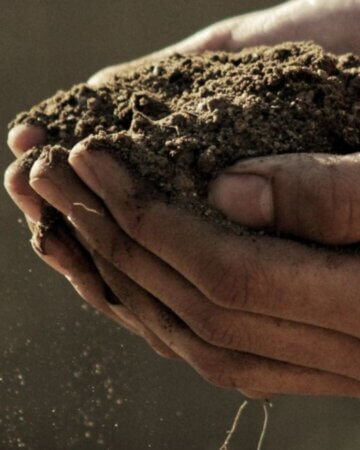
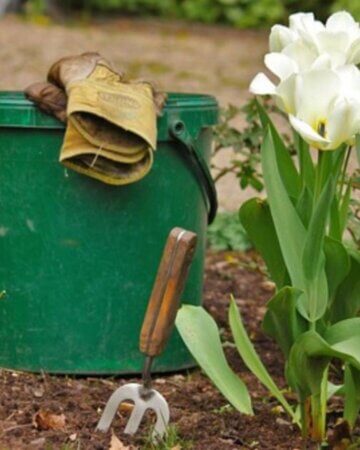
Leave a Reply